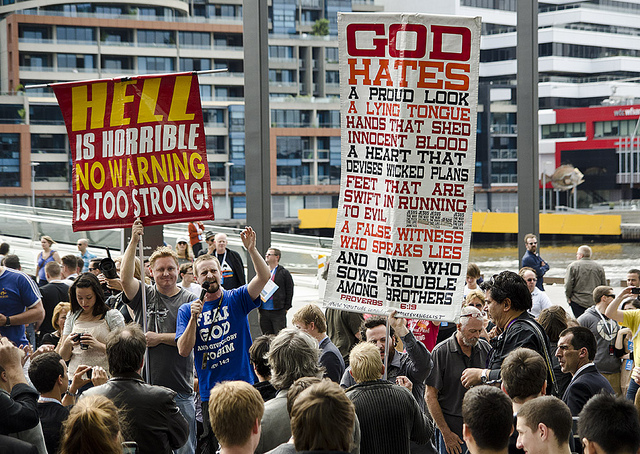Mormons, Muslims and Lazy Christians
Posted: 10 April 2016
Australia’s mostly widely read weekend newspaper recently carried a front page story in which we were informed that a popular Rugby League player would no longer play or train on Sundays so that he could attend his weekly church service. Canterbury Bulldogs star Will Hopoate negotiated the clause into his contract due to what the newspaper called his “staunch devotion to his Mormon faith”. The article went on to quote the 23-year-old who spoke about his desire that Sunday be maintained as a day set apart for rest, worship and charitable work. The coverage not only spoke about Hopoate, but carried positive information about the Mormon religion and other high profile Mormon Athletes.
I have no problem with the young man wanting to have a sacrosanct day in his week dedicated to prayer and refection. The world would be a far better place if each one of us, religious or otherwise, also took a day each week to stop and reflect. What I found most interesting in the article though was the obvious novelty seen in what Hopoate was doing. Actually perhaps ‘interesting’ is the wrong word, maybe I should have chosen ‘disappointing’, and for two reasons. First, only two generations ago a newspaper article would have been more likely commenting on the novelty of professional sport actually taking place on a Sunday. Second, it’s disappointing because mainstream Christianity has basically sold out on what were once its core values and that has been left to be picked up by groups such as the Mormons. How many Catholics, Anglicans or Orthodox do you notice standing up for the value of Sunday? How many are instead spending Sunday worshipping at the Cathedral of Saint Westfield or singing the joyful praises of Macy’s?









